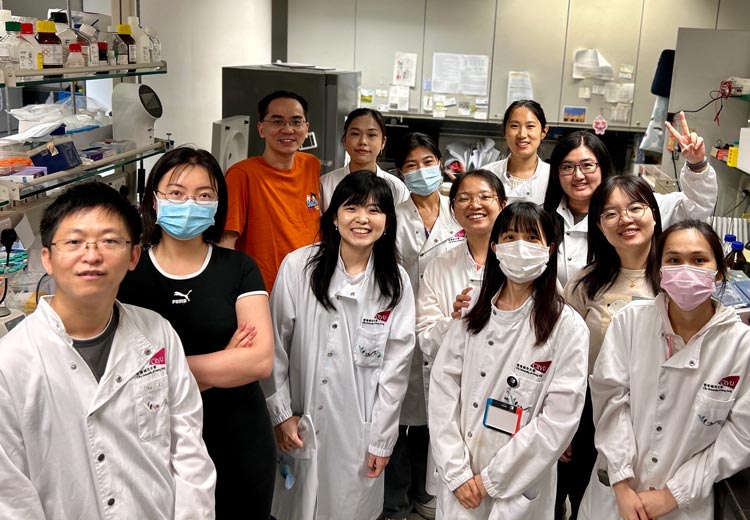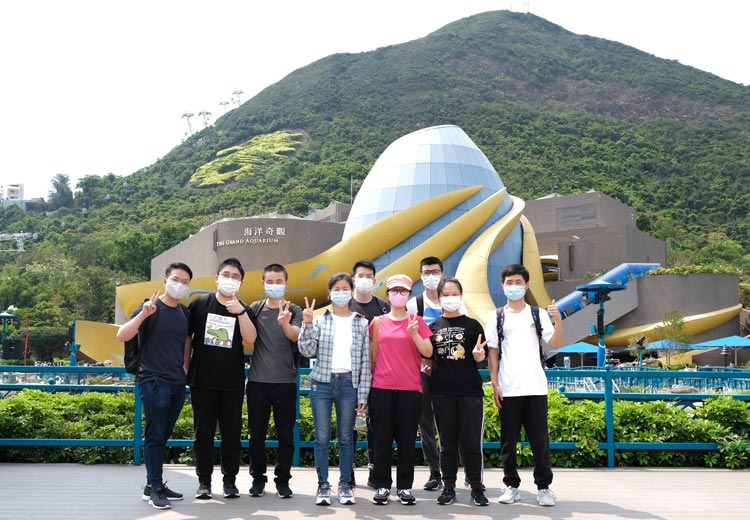Awards for research excellence support development and funding

Sponsored by

At the City University of Hong Kong’s Department of Chemistry, two researchers have received the Excellent Young Scientists Fund from the National Natural Science Foundation of China
The Department of Chemistry at the City University of Hong Kong (CityU) boasts 31 faculty members working at the forefront of their respective fields of research. Among them are assistant professor Thuc Hue Ly and associate professor Chun Kit Kwok.
“I began my academic career as an undergraduate at the Chinese University of Hong Kong, where I took part in an exchange programme at the University of California, Los Angeles, before completing a PhD at Pennsylvania State University and a Croucher postdoctoral fellowship at the University of Cambridge,” Kwok says. “I then returned to Hong Kong to focus on RNA G-quadruplex structures and aptamers.”
Ly, meanwhile, obtained her PhD in 2015 and worked as a postdoctoral research fellow at Sungkyunkwan University’s Center for Integrated Nanostructure Physics, under the supervision of Lee Young Hee, a professor of physics at the university. She joined CityU in August 2017 and established a research lab for two-dimensional materials.

Last year, both Kwok and Ly received the Excellent Young Scientists Fund for Hong Kong and Macau from the National Natural Science Foundation of China in recognition of their pioneering work. The award won by Kwok comes in recognition of his interdisciplinary achievements, with his research touching on chemical and biological sciences. The award highlights how the different research directions being pursued by his lab can be brought together.
“The award win was primarily granted for my work in the materials science fields,” Ly says. “To be more specific, the discoveries made in terms of a material’s cleanliness and electronic properties could have a major impact on the microelectronics field.”
The award will bring greater attention to both scientists’ work. “Winning the Excellent Young Scientists fund has impacted my work in two distinct ways,” Kwok says. “Firstly, it provides recognition for years of hard work and commitment to the chosen fields, so comes as a real confidence boost for everyone at the lab. Secondly, it will provide funding support for our cutting-edge research, which means our work can be bolder, more future-looking, and we can recruit more staff to achieve these goals together.”
“The funding will help me to build a research team focused on two-dimensional materials synthesis and applications,” Ly says. “Already as a result of the awarded funding, my team has developed new technologies related to two-dimensional materials.”
With the funding secured, Kwok and Ly can turn their attention to future research plans. “Looking ahead, I will continue to focus on the preparation and assembly of a set of two-dimensional material interfaces, as well as making direct correlations between the properties and structures of next-generation electronic and optoelectronic devices,” Ly says. “These endeavours will enlighten both fundamental materials science research and the promising applications of two-dimensional materials.”
Kwok also has future ambitions to pursue. As well as continuing to bring thought-provoking speakers to the Hong Kong RNA Club, which he established, he will continue to explore unanswered questions around his research.
“We need to keep an eye on the bigger picture,” Kwok explains. “Where are the RNA G-quadruplex structures formed? How many are there in different species? What are their functions and regulation in cells? Are they disease-related? Can they be specifically targeted? There are many things that remain unclear. But our team, alongside our collaborators, will continue to pursue novel methodologies and innovative tools until these questions and others like them are answered.”
Find out more about the Department of Chemistry at the City University Hong Kong.